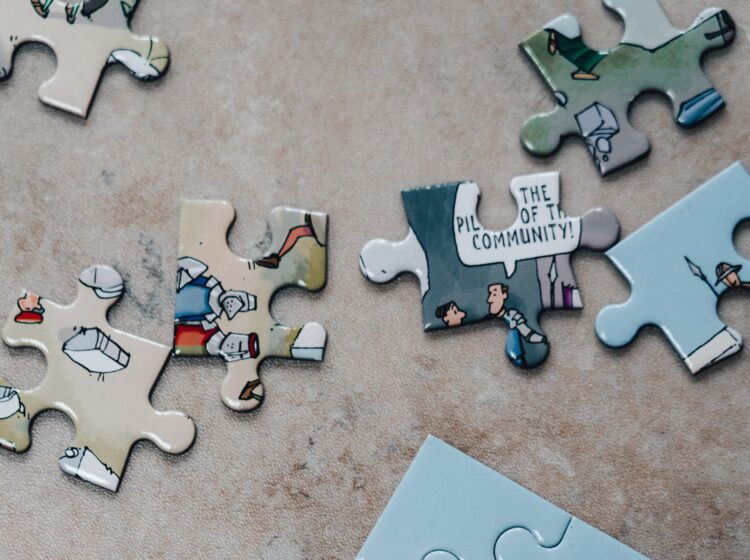Do you enjoy puzzles? Maybe you love piecing together a jigsaw puzzle. Perhaps you enjoy Wordle or Sudoku or Spelling Bee. Maybe you like a good logic puzzle with multiple factors to untangle as you work toward the correct solution.
All of those puzzles—and many more—can be frustrating, but in the end the satisfaction of finishing them more than makes up for any stress they caused.
In the early days of your recovery from a substance use disorder, the project of staying sober can feel like a particularly challenging puzzle. But finding a way to solve that puzzle is both satisfying and essential.
Let’s take a look at some of the puzzle pieces that, when you put them together, reveal a picture of you maintaining your sobriety over time.
Three Interlocking Pieces of Sobriety
When it comes to staying sober, there are three related areas of your life that are interconnected and that support your physical and mental health—which in turn support your sobriety.
Good nutritional choices, a regular exercise routine, and a plan for getting the restful sleep you need can serve as the foundation of your recovery efforts. Adding a few more veggies and fruits while reducing sugar and caffeine can be a great start on the diet front. Finding a physical activity you enjoy (and it does not have to be super strenuous to be good for you) offers a range of benefits. And establishing a sleep routine that helps you wind down and drift off is simply essential to your overall well-being.
Snap these three pieces into place, and you will be providing significant underpinning to your efforts to stay sober.
Put Together a Positive Set of Connections
Another important part of the recovery puzzle is a collection of good connections.
The members of your recovery program—including a sponsor or recovery mentor—are an important source of support. Your doctor and therapist are, too. You might find your faith community to be helpful. And a group of supportive friends and family members—people who always have your back and who watch out for you in situations that might be tricky or tempting—is absolutely central to your recovery.
On the flip side, you want to entirely eliminate toxic individuals—those who might encourage you to return to drugs or alcohol or who treat you poorly and undermine your self-esteem—from the sobriety puzzle you are piecing together.
Clues and Strategies To Support Your Sobriety
Each individual’s recovery journey is unique, which means each person must puzzle out what works best for them in their efforts to maintain their sobriety. But there are additional practices and ideas that might become an important part of your strategy.
For example, practicing mindfulness encourages you to stay present in the current moment rather than ruminating about the past or worrying about the future. For many, this practice firms up the foundations of sobriety.
Or you might find journaling to be a helpful practice. Your journal could take any of a number of forms (or even combine some of those forms), but many people find journaling to be a good way to process feelings, to remind themselves of the things they are grateful for, or both.
And we would be remiss if we didn’t mention the value of pursuing an engaging hobby—like solving puzzles, for example. Your hobby can be just about anything (as long as it does not involve drugs or alcohol). The key is to find something you truly enjoy and then engage with it regularly as a way to relax and recharge. That’s right: Having fun pursuing a hobby supports your sobriety.
Getting Treatment Should Not Be Puzzling at All
If you are struggling with drugs or alcohol, you may be at loss as to what you should do next to start reclaiming your sobriety and your life. After all, it can be extremely difficult to think clearly when you are in the grips of a substance use disorder.
Fortunately, the steps you need to take to get sober are not at all puzzling. At Bel Aire Recovery Center in Kansas, we provide a straightforward path through treatment. The process starts with our medically supervised approach to detoxification. Next comes a robust rehabilitation program that includes individual therapy, group therapy, and treatment for any co-occurring mental health disorders (depression, anxiety, trauma-centered issues, and the like) that may be entangled with your substance use disorder. Finally, we are committed to a continuum of care—which means you will have the support you need in the early days of your recovery journey.
If you are ready to start the process, we are ready to provide personalized care grounded in evidence, experience, expertise, and empathy.




